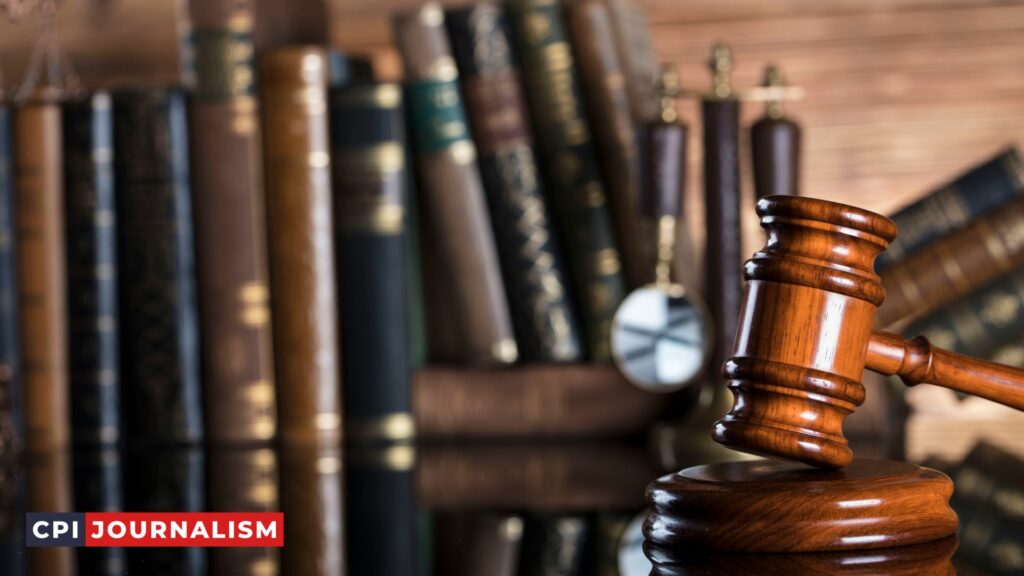What Are The Challenges Of Covering Controversial Topics In Sports Journalism?
As an experienced journalist, I understand how difficult and challenging it can be to cover controversial topics in sports journalism.
It can be intimidating, especially if you’re new to the field, to tackle such topics in a way that is both respectful and accurate.
But it is an important part of the job, and it is essential that journalists are prepared to engage with these issues in a professional, ethical, and responsible manner.
In this article, I will discuss the unique challenges of covering controversial topics in sports journalism and provide practical advice on how to approach difficult stories.
A. Lack of Access to Sources
One of the biggest challenges in covering controversial topics in sports journalism is the lack of access to sources. Journalists often struggle to get athletes, coaches, and other sports personnel to open up and provide information.
This can be especially difficult when the subject matter is controversial, as many of those involved are often hesitant to speak on the record.
Moreover, even when sources are willing to provide information, they may not be reliable or provide accurate information. As a journalist, it is important to verify any sources and make sure the information is accurate before going to print.
This can be a difficult process, especially when sources are not willing to provide their full name or contact information.
Additionally, there is the issue of access to sources within the organization. It can be difficult to get access to team personnel, especially when the subject matter is controversial.
Team personnel may be reluctant to provide information to journalists, as they may fear repercussions from the organization.
Finally, there is the issue of access to information within the organization. Many organizations are reluctant to provide any information to journalists, as they may fear how it will be used or portrayed in the media.
This can be a significant obstacle for sports journalists, as they may not be able to get the information they need to tell the story accurately.
B. Pressure From Fans and Teams
Covering controversial topics in sports journalism can be a daunting task. On one hand, journalists are expected to remain neutral and objective when reporting on sports, while on the other hand, they need to be aware of the potential consequences of their articles.
One of the main challenges that journalists face is pressure from fans and teams.
When covering controversial topics, journalists may receive pushback from fans and teams who want the story to be presented in a certain light.
For instance, some teams may be reluctant to talk about a controversial issue, while others may be more willing to address it, but only on their own terms. This can make it difficult for journalists to remain impartial and to get all sides of the story.
At the same time, some fans may be vocal in their opinions and attempt to influence the direction of the story. They may try to pressure the journalist to omit certain facts or to present the story in a way that reflects their own views.
This can be a difficult situation for journalists to navigate, and it is important for them to remain independent and impartial when reporting on controversial topics.
In addition to pressure from fans and teams, journalists also face the challenge of ensuring accuracy and fairness when covering controversial topics.
It is important to ensure that information is presented in an impartial and unbiased way, and that all relevant facts are included in the story. This is essential in order to maintain credibility and trust with the readers.
Overall, the challenge of covering controversial topics in sports journalism is a difficult one. There is a lot of pressure from fans and teams, and journalists must be careful to remain independent and unbiased in their reporting. At the same time, accuracy and fairness are essential in order to maintain credibility and trust.
C. Fear of Retaliation
Fear of retaliation is a very real and serious challenge for sports journalists covering controversial topics. In some cases, journalists risk their personal safety if they choose to cover a sensitive or controversial issue.
Journalists may be subject to public criticism, or even physical threats or attacks, for reporting on topics that are seen as politically or socially divisive.
In addition to physical threats, journalists may also fear professional retaliation when covering controversial topics. Journalists may be denied access to certain events, or be blacklisted by certain organizations or even the entire sports industry if they choose to cover a sensitive or controversial issue.
This could mean that their ability to cover other topics in the future could be affected, or their reputation as a journalist could be tarnished.
The fear of retaliation can be a powerful deterrent for journalists when it comes to covering controversial topics in sports journalism.
It is important for journalists to be aware of the potential risks and to take precautions to protect themselves, such as working with legal counsel and being aware of their rights and responsibilities.
It is also essential for journalists to be aware of the potential for bias and strive to be as impartial and transparent as possible when covering sensitive topics.
D. Difficulty in Obtaining Accurate Information
One of the greatest challenges of covering controversial topics in sports journalism is obtaining accurate information. As journalists, we have a duty to report only facts – not rumors or speculation.
This is particularly difficult when it comes to controversial topics in sports, as the public is often passionate and opinionated on the matter.
As a result, it can be difficult to find reliable sources who can provide accurate and unbiased information.
It is essential to do thorough research and seek out multiple sources to verify any facts or claims. This can be time consuming, but it is important to ensure that only accurate information is reported.
In addition, it is important to be aware of any potential biases that may exist in the sources used for information. Sources may be biased due to their personal opinions on the issue, or their relationship with the people involved.
It is essential to be aware of these biases, and to take them into account when reporting on the issue.
Finally, it is important to remember that the accuracy of any information can be easily distorted when reported in the media. It is important to be careful to report only the facts, and to avoid sensationalizing the story.
This can be difficult, but it is essential in order to ensure that accurate information is reported to the public.
E. Potential for Misrepresentation
Misrepresentation is a serious challenge when it comes to covering controversial topics in sports journalism. Journalists must be aware of the potential for their words and images to be misconstrued, which can lead to a distorted view of reality.
A good journalist should strive to present the facts as accurately and objectively as possible, but this can be difficult in the heat of the moment.
When emotions are running high, it can be tempting to take shortcuts with the facts in order to paint a certain picture of the story. It’s important to resist this temptation and ensure that any sensationalism is based on facts, not speculation.
It’s also important for journalists to be aware of the potential for their words and images to be manipulated by external sources. For example, a journalist may be presented with a story that is already biased in favor of one particular side of the argument.
This makes it difficult to provide an impartial account of the situation, as the journalist may be too influenced by the bias.
Finally, journalists must be aware of the potential for their words and images to be used to manipulate public opinion. This can be done by distorting the facts or using inflammatory language to evoke a certain emotional response.
In these cases, it is important for the journalist to be aware of the potential for their words and images to be used to manipulate public opinion, and take steps to avoid this.
Overall, it is important for journalists to be aware of the potential for their words and images to be manipulated or misrepresented when covering controversial topics in sports journalism.
By being mindful of the potential for misrepresentation, a journalist can ensure that they present an accurate and impartial account of the situation.
F. Risk of Legal Action
In covering controversial topics in sports journalism, one of the greatest challenges is the risk of legal action. Depending on the topic and the approach taken, a journalist could face a lawsuit for libel or defamation.
To protect yourself as a journalist, it is essential to be aware of the applicable laws and to use caution when writing about any potentially sensitive topics.
When covering controversial topics, it is critical to ensure that all facts are accurate and that any sources of information are reliable.

Do not rely on rumors, gossip, or speculation when making claims or assertions. Additionally, always be sure to give both sides of the story and to use language that is balanced, objective, and non-inflammatory.
When it comes to legal action, the best defense is a good offense. Make sure to keep meticulous records of all your research and sources and be prepared to defend any claims or assertions you make in your reporting.
Additionally, it is wise to consult a lawyer if you have any questions or concerns about a particular story. Taking these precautions can help you minimize your risk of legal action and ensure that you are able to effectively cover controversial topics in sports journalism.
II. Strategies for Overcoming Challenges
Covering controversial topics in sports journalism can be a daunting task. However, with the right strategies and approaches, journalists can successfully navigate these difficult stories.
Here are some of the strategies for overcoming the challenges of covering controversial topics in sports journalism:
1. Do Your Research: The most important part of covering a controversial topic in sports journalism is to be well informed. Make sure you have done your research and are familiar with the facts and figures related to the story. This will enable you to ask informed questions and present a balanced view of the situation.
2. Seek Multiple Perspectives: When covering a controversial topic, it is important to get perspectives from all sides. Get input from players, coaches, fans, and even opponents. This will help you get a more complete picture of the situation and allow you to present a well-rounded story.
3. Address Controversy Directly: Don’t shy away from the controversy. Address it head on and explain why it is an issue. This will help readers understand the situation better and will ensure they are informed of the truth.
4. Use Professional Journalism Practices: When covering controversial topics in sports journalism, it is important to use professional journalism practices. Make sure you are unbiased and ethical in your reporting.
5. Remain Calm: It can be difficult to remain calm when covering a controversial topic. However, it is important to remain professional and not let your emotions get the best of you.
By following these strategies and approaches, journalists can effectively navigate the challenges of covering controversial topics in sports journalism.
With the right approach, journalists can provide readers with accurate and unbiased information and enable them to make informed decisions.
A. Establishing Relationships With Sources
One of the greatest challenges of covering controversial topics in sports journalism is establishing relationships with sources.
It is important for journalists to build trust and rapport with their sources in order to get the accurate and reliable information they need.
This can be especially difficult when the source is hesitant to speak on a sensitive or controversial topic, or when the source’s views may be unpopular.
In order to build relationships with sources, it is important to be open, honest and respectful. Journalists should also be transparent about their intentions and the nature of the story they are writing.
It is also essential for journalists to take the time to build relationships with their sources, taking the time to learn about their background and understanding their perspective.
Journalists should also be aware of the power dynamics in their relationships with sources. Sources may be more likely to share information with a journalist they trust, rather than one they perceive as having a position of power or authority.
It is important for journalists to be aware of the power dynamics at play and to make sure that their sources feel comfortable in their interactions.
Finally, it is important for journalists to be aware of any potential ethical considerations in their relationships with sources.
It is important for journalists to be aware of any potential conflicts of interest, or any potential biases that may be influencing their reporting.
By taking the time to build strong relationships with sources, journalists can ensure that they have access to the accurate and reliable information they need to cover controversial topics in sports journalism.
B. Developing a Thick Skin
One of the biggest challenges of covering controversial topics in sports journalism is developing a thick skin. As a journalist, you will undoubtedly come across people who disagree with what you have to say, and it’s important to be resilient and not take criticism personally.
No matter how much research you’ve done, or how balanced and even-handed your reporting is, there will always be people who disagree with your words.
It’s important to remember that criticism often comes from a place of passion and emotion, particularly when it comes to sports.
People are passionate about their teams, and it’s to be expected that they may not be happy with what you have to say. As a journalist, it’s important to be able to accept criticism and move on.
It’s also important to remember that criticism can be a healthy thing. It’s often through criticism that we can find out what we’re doing wrong and how to improve. As a journalist, it’s important to take criticism on board and learn from it, rather than simply brushing it off.
Finally, it’s important to remember that as a journalist, you have a moral obligation to report the truth, no matter how uncomfortable it might be.
It’s not always easy to do this, but it’s important to stay true to your principles and report the story as accurately as possible. This is the only way to ensure that readers get an accurate and unbiased view of the topic at hand.
C. Utilizing Multiple Sources
As a journalist covering controversial topics, it is important to utilize multiple sources to ensure accuracy, credibility, and fairness.
This is especially true when covering issues of race, gender, and politics, as these issues are often sensitive and complex and can lead to heated debate.
When gathering information from multiple sources, it is important to maintain objectivity and to ensure that all sides of the argument are represented.
Many journalists find it helpful to keep a list of reliable and trusted sources for information and to always maintain a healthy level of skepticism when evaluating sources.
In addition to primary sources, such as interviews with key players, it is also important to reference secondary sources, such as archived articles and reports.
This can help to provide context and historical perspective, which can be crucial to understanding the current events.
It is also important to remember the potential for bias in any source. It is the journalist’s responsibility to identify any potential bias in sources and to take steps to ensure that the story is presented in an unbiased and fair manner.
Overall, utilizing multiple sources is key to covering controversial topics in sports journalism. By drawing on multiple sources and considering all sides of the argument, journalists can ensure accuracy, credibility, and fairness in their reporting.
D. Maintaining Professionalism
Maintaining professional behavior is essential when covering controversial topics in sports journalism. It can be difficult to remain unbiased and professional when dealing with such emotionally charged topics, but it is essential for the integrity of the story.
The first step in maintaining professionalism is to remain objective. As a journalist, it is important to keep your opinions out of the story.
Your job is to present the facts and allow the reader to make up their own mind. It is also important to remain calm and composed, even in the face of criticism.

It is also important to remain sensitive when covering these topics. It is essential to be aware of the opinions of all parties involved and to be respectful of their perspectives. It is also important to be aware of your own biases and to make sure they do not affect your coverage.
Finally, it is important to be transparent and honest in your coverage. It is essential to be honest and forthright with the facts, and to make sure that any sources used are accurately represented. Doing so will ensure that the story is accurate and trustworthy.
By maintaining professional behavior, journalists can ensure that the story is impartial and accurate. This will ensure that the integrity of the story is maintained and that the reader can make up their own mind without being swayed by biased opinions.
E. Fact-Checking and Verifying Sources
As journalists, it is our responsibility to ensure that our reporting is accurate and truthful. When covering controversial topics in sports journalism, it is essential to fact-check and verify all sources. This means verifying that the facts presented are accurate and the sources are reliable.
To protect the integrity of our reporting, we must vet our sources and make sure that the information they provide is accurate and trustworthy.
This can be done by conducting research and interviewing sources to determine the accuracy of their statements. Additionally, it is important to cross-check information from different sources to ensure accuracy.
Verifying sources also requires us to be aware of any potential conflicts of interest. We must carefully consider any conflicts of interest that may exist between the source and the topic we are covering.
For example, if a source is a team owner or coach, we must be aware that their statements may be biased in favor of the team.
Finally, it is important to be aware of any potential bias that may be present in our reporting. We must strive to maintain an impartial perspective and to be aware of our own biases and preconceptions.
By conducting thorough research and verifying our sources, we can ensure that our reporting on controversial topics in sports journalism is accurate and trustworthy. This is essential to upholding the integrity of the profession and providing our readers with reliable information.
F. Understanding Legal Implications
One of the most important challenges of covering controversial topics in sports journalism is understanding the legal implications of your reporting. Being aware of libel laws and defamation laws are of utmost importance when reporting on controversial topics.
Firstly, it is essential to be aware that you should always tell the truth when reporting on controversial topics in sports journalism. Any false statements or misrepresentations of the facts could result in a lawsuit and significant damages.
Additionally, it is important to understand the concept of libel and defamation. Libel is a false statement that is published, broadcast, or otherwise communicated in written or spoken form that causes damage to someone’s reputation.
Defamation, on the other hand, is a false statement that is spoken, broadcasted, or otherwise communicated in spoken form that causes damage to someone’s reputation.
Therefore, when reporting on controversial topics in sports journalism, it is important to make sure that all statements are truthful and backed up with facts. When in doubt, it is best to seek legal advice or consult an attorney before publishing or broadcasting any material.
Furthermore, it is important to make sure that any sources used for the story are reliable and trustworthy.
In conclusion, understanding the legal implications of covering controversial topics in sports journalism is of utmost importance. It is essential to make sure that all statements are true and backed up with facts, and that any sources used are reliable and trustworthy.
Conclusion
Covering controversial topics in sports journalism can be a challenging but rewarding experience. As a journalist, it is important to maintain a balanced and unbiased perspective when reporting on controversial topics.
It is also important to remain aware of potential biases and the potential for stories to become sensationalized or misrepresented.
Furthermore, it is important to remain ethical and professional when reporting on controversial topics, and ensure that sources are accurately quoted and cited.
Finally, it is important to remember that sports journalism is a form of storytelling, and as such, should be approached with creativity, thoughtfulness, and a journalistic eye for detail.
By understanding the challenges of covering controversial topics in sports journalism, journalists can approach these stories with confidence, accuracy, and integrity.
With a keen eye for detail, a commitment to accuracy, and an understanding of the potential implications of reporting on controversial topics, journalists can continue to provide engaging and insightful coverage of the issues that matter most
A. Summary of Challenges of Covering Controversial Topics in Sports Journalism
Covering controversial topics in sports journalism comes with its own set of challenges. Firstly, it is important to ensure that the reporter is well informed and has all the facts before they report.
Often, there are multiple sides to a story, and it is important for the journalist to present all of them fairly and accurately. It is also important to make sure that any opinion pieces or commentary are clearly marked.
Secondly, sports journalists must take extra care when covering contentious issues in order to remain unbiased and ethical.
It is important to be aware of any potential conflicts of interest, such as those related to race, gender, or other aspects of identity. It is also important to ensure that all sources are accurately cited and that any claims or statements are verified.
Finally, sports journalists must also be aware of how their reporting may be perceived by their audience. They must be prepared to face potential criticism and backlash and must also be aware of potential legal repercussions of their reporting.
It is important to be aware of any laws or regulations related to sports journalism, such as libel laws or restrictions on reporting certain topics.
Overall, covering controversial topics in sports journalism is a difficult and challenging task. It requires a great deal of research, accuracy, fairness, and ethical behavior on the part of the journalist.
With careful research and fact-checking, sports journalists can ensure that their reporting is accurate and responsible.
B. Strategies for Overcoming Challenges
1. Research and Stay Informed: Controversial topics in sports journalism can be difficult to cover, but staying informed and researching the topic thoroughly is key. Make sure to research both sides of the argument to ensure a balanced and fair story.
2. Seek Out Alternative Sources: Seek out alternative sources, such as athletes, coaches, fans, and other experts, to provide a viewpoint that may help to provide a balanced story.
3. Avoid Bias: It’s important to be aware of your own personal biases and to avoid letting them influence your reporting. Keeping an open mind and being objective is essential when covering controversial topics in sports journalism.
4. Be Prepared for Controversy: When covering controversial topics, it’s important to be prepared for potential backlash. Be sure to double-check facts and be aware of potential criticisms that may arise from your story.
5. Consider the Impact: Consider how your story may impact the larger world. It’s important to be aware of how your story may be interpreted and to be prepared for potential reactions.
C. Final Thoughtsfalse
Covering controversial topics in sports journalism can be a daunting task, but with the right approach, it can also be highly rewarding.
As an experienced journalist, I would advise upcoming journalists to approach controversial topics with an open mind, an understanding of the complexities of the issue, and a commitment to telling the full story.
It is essential to remain objective and to be aware of the potential consequences of covering such topics.
At the same time, it is important to remember that sports journalism is not just about controversy—it is also about celebrating the exciting and inspiring moments of sports.
It is important to recognize and give credit to the athletes and teams who have achieved great things and to tell their stories in a balanced and respectful manner.
Above all, it is important to remember that sports journalism is a profession of courage and integrity.
It takes a great deal of bravery to cover controversial topics in sports journalism, and it is important to remember that the job of the journalist is to speak truth to power, no matter what.







